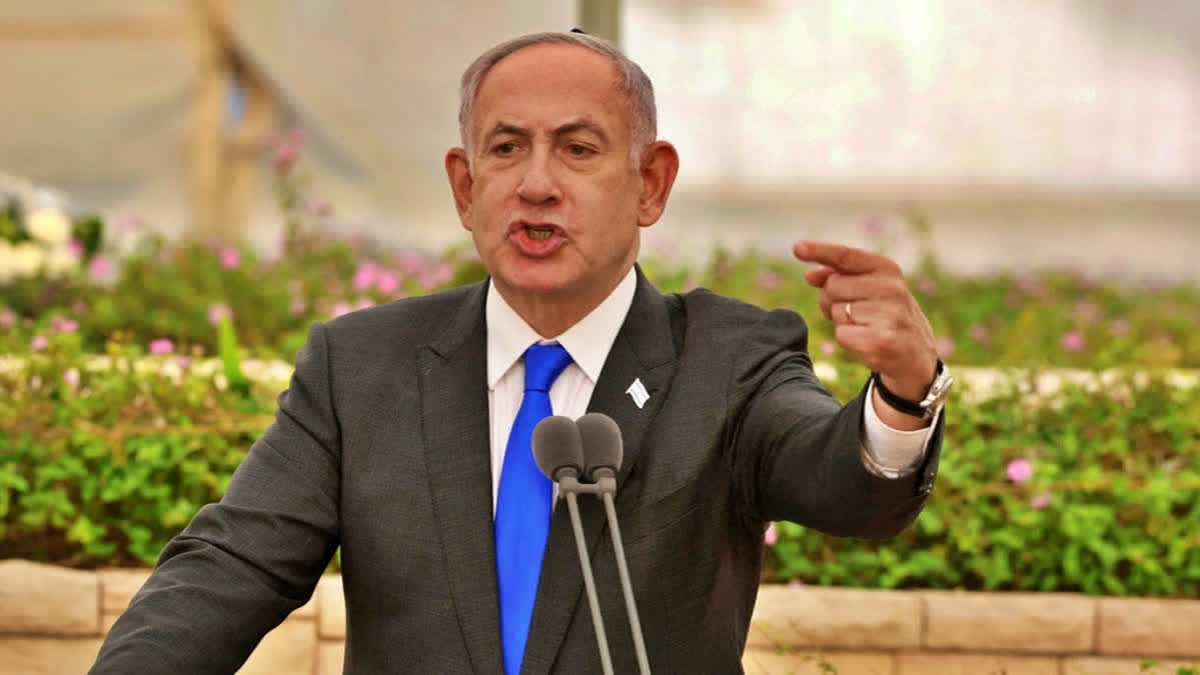Jerusalem:Israel vowed to make Iran "pay" for firing a barrage of missiles at its territory, with Tehran warning on Wednesday it would launch an even bigger attack if it is targeted.
Iran launched its second direct attack on Israel in history on Tuesday, firing what it said were 200 missiles including hypersonic weapons, and sending frightened Israeli civilians into shelters.
Israel, which put the number of missiles fired at its territory at 180, pounded Lebanese strongholds of Iran ally Hezbollah, with heavy strikes early Wednesday on south Beirut.
Israel shifted its focus last month from the war in Gaza, which was sparked by Hamas's October 7 attacks, to securing its northern border with Lebanon, where it is fighting Hezbollah.
After issuing numerous threats against Israel, Iran launched its second attack since April, sparking panic in Israel and around the region. Israel intercepted most of Iran's missiles, while Israeli medics reported two people injured by shrapnel.
One of the missiles damaged a school building. In the occupied West Bank, a Palestinian was killed in the city of Jericho "when pieces of a rocket fell from the sky and hit him", the city's governor Hussein Hamayel told AFP.
"Iran made a big mistake tonight and will pay for it," Israeli Prime Minister Benjamin Netanyahu said. "Whoever attacks us, we attack them."
Defence Minister Yoav Gallant, who was at the command and control centre monitoring the interception of Iranian missiles, also vowed vengeance. "Iran has not learned a simple lesson -- those who attack the state of Israel, pay a heavy price," he said in a statement.
- 'Severe consequences' -
Iran's Revolutionary Guards said the attack was in response to Israel's killing last week of Hezbollah chief Hassan Nasrallah, as well as the death of Hamas leader Ismail Haniyeh in a Tehran bombing in July widely blamed on Israel.
The attack also sought to avenge Israel's killing with Nasrallah of leading Iranian commander Abbas Nilforoushan of the Quds Force, the Revolutionary Guard's foreign operations arm. The attack came after the Israeli military said troops had started "targeted ground raids" in south Lebanon, across Israel's northern border.
On Wednesday, Hezbollah said its fighters clashed with Israeli troops who tried to infiltrate into Lebanon. The Lebanese army also said Israeli troops had staged two brief incursions before withdrawing shortly afterwards.
Also on Wednesday, the Israeli military announced it was bombarding Hezbollah targets in Beirut, with a Lebanese security source telling AFP that Israel had hit the city's southern suburbs repeatedly overnight. AFP correspondents heard around 20 explosions coming from southern Beirut, and smoke billowed over the area.
The spike in violence in Lebanon since mid-September has killed more than 1,000 people and forced hundreds of thousands more to flee their homes. President Joe Biden said the United States was "fully supportive" of Israel after the missile attack.
US Defense Secretary Lloyd Austin slammed an "outrageous act of aggression" by Iran, while Biden's National Security Advisor Jake Sullivan told reporters there would be "severe consequences".
